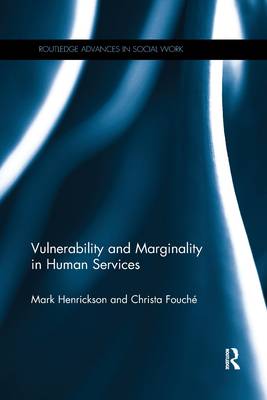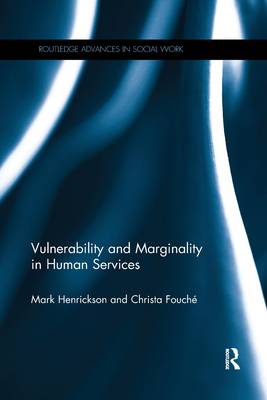
- Afhalen na 1 uur in een winkel met voorraad
- Gratis thuislevering in België vanaf € 30
- Ruim aanbod met 7 miljoen producten
- Afhalen na 1 uur in een winkel met voorraad
- Gratis thuislevering in België vanaf € 30
- Ruim aanbod met 7 miljoen producten
Omschrijving
Vulnerability has traditionally been conceived as a dichotomised status, where an individual by reason of a personal characteristic is classified as vulnerable or not. However, vulnerability is not static, and most, if not all, people are vulnerable at some time in their lives. Similarly, marginality is a social construct linked to power and control. Marginalised populations are relegated to the perimeters of power by legal and political structures and limited access to resources. Neither are fixed or essential categories.
This book draws on international research and scholarship related to these constructs, exploring vulnerability and marginality as they intersect with power and privilege. This exploration is undertaken through the lenses of intimacy and sexuality to consider vulnerability and marginality in the most personal of ways. This includes examining these concepts in relation to a range of professions, including social work, psychology, nursing, and allied health. A strong emphasis on the fluidity and complexity of vulnerability and marginality across cultures and at different times makes this a unique contribution to scholarship in this field.
This is essential reading for students and researchers involved with social work, social policy, sociology, and gender and sexuality studies.
Specificaties
Betrokkenen
- Auteur(s):
- Uitgeverij:
Inhoud
- Aantal bladzijden:
- 168
- Taal:
- Engels
- Reeks:
Eigenschappen
- Productcode (EAN):
- 9780367595067
- Verschijningsdatum:
- 30/06/2020
- Uitvoering:
- Paperback
- Formaat:
- Trade paperback (VS)
- Afmetingen:
- 156 mm x 234 mm
- Gewicht:
- 244 g

Alleen bij Standaard Boekhandel
Beoordelingen
We publiceren alleen reviews die voldoen aan de voorwaarden voor reviews. Bekijk onze voorwaarden voor reviews.











